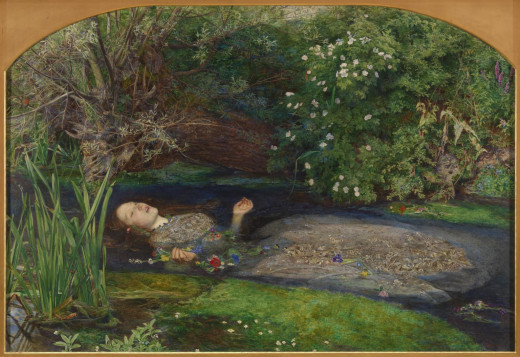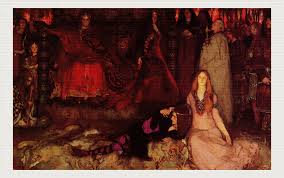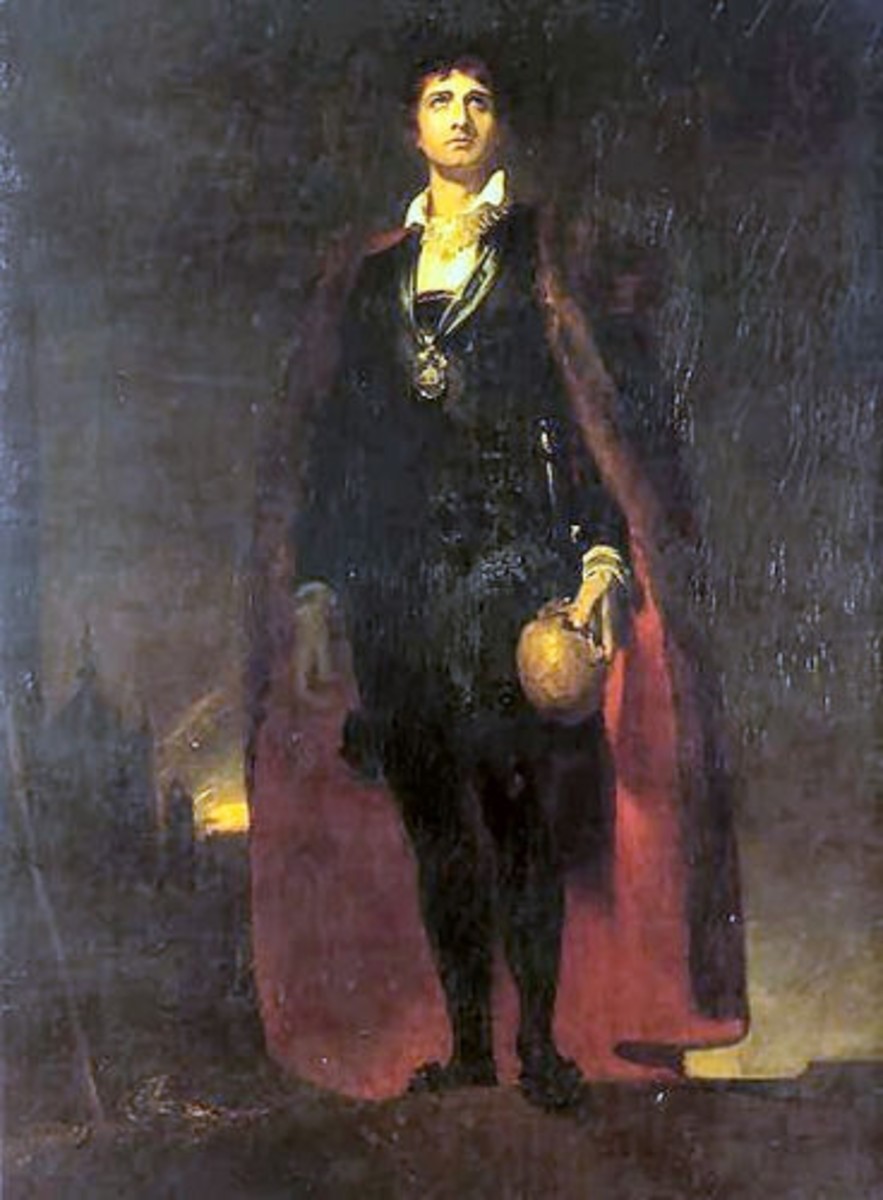- HubPages»
- Books, Literature, and Writing»
- Literature»
- English Literature
Hamlet: An Examination of A Troubled Mind Part IV
Ophelia

This is a continuation of an examination essay of the mental character of Hamlet of William Shakespeare's famous tragedy Hamlet. You can read Part I Here
“Who builds stronger than a mason, a shipwright, or a carpenter?” (V.i.51-52)
Due to the unsettling nature of Hamlet’s assumed character and actions, Ophelia (too) lost herself in the downward chasm of madness. After the death of her father, the inward anguish that his murderer went unpunished, and Hamlet’s conduct towards her the night of the play before being swiftly sent away - her quiet, polite and obedient mind could not handle the weight, and cracked.
While many academics debate if her death was intentional – either by her own hand or that of another – or if she truly did fall by mistake, the literary fact remains that she tumbled into the river while the heaving cloth of her dress filled with water, and dragged her down.
It was the extravagance of the resulting moment, when all gather at her burial plot – Claudius, Gertrude, Laertes, Hamlet, and Horatio – that finally begged an honest moment from Hamlet, jumping before his enemies and declared his love for Ophelia, after the first thuds of soft earth were heard on her casket.
In response, both King and Queen respond in prompt to his (questionably) manufactured distraction.
HAMLET: “I loved Ophelia. Forty thousand brothers
could not with all their quantity of love
Make up my sum. What wilt thou do for her?”
KING: “O, he is mad, Laertes!”
QUEEN: “For love of God, forbear him.”
(V.i.285-289)
It is interesting to think that in a moment of pure honesty and morose, that the initial reaction for such an outburst was to declare that it was a result of a disturbed mind. Even the queen asks for patience for Hamlet of Laertes, not disagreeing with her husband.
Ophelia's Funeral

It is been quite clear throughout the play that while travesty, betrayal and heartache are the components which make up the tragedy of Hamlet, our hero worked through a broken mind, one that brought torment on those around him as he contemplated life and death, the morality of revenge, and grief. Through the subtle and lesser noticed suggestions of an ill mentality from his parents, Polonius, and even Horatio, to the irrational actions which lead to far more dire consequences than had he faced the accusation directly (instead of doddering about, wasting time instead of killing Claudius), it is a hearty debate which can happily argue against the natural sanity Hamlet possessed in his last days. Even in his most honest moments, his emotional turmoil reigned supreme, fading into the fragmented moment of what he so cleverly thought to be a jested insanity.
Feel Free To recap!
Read Part I
Read Part II
Read Part III
Citation
Shakespeare, William. Hamlet. Editor Mowat, Barbara A. and Werstine, Paul. New York, NY. Simon & Schuster Paperbacks. 2012. Print.
Gerlach, Peter K. MSW. www.sfhelp.com. http://sfhelp.org/grief/symptoms.htm. 30 April 2013. Web. 15 Oct. 2014
Chen, Yi-Chi. Pregnant with Madness: Ophelia’s Struggle With Madness in Hamlet. www.benz.edu. http://benz.nchu.edu.tw/~intergrams/intergrams/112/112-cyc.pdf. Web. 15 Oct. 2014
Montgomery Byles, Joanna. Shakespeare and Psychoanalysis: Tragic Alternatives: Eros and the Superego Revenge in Hamlet. www.PsyArtJournal.com. http://www.psyartjournal.com/article/show/montgomery_byles-shakespeare_and_psychoanalysis_tragic_al. 25 Aug 2005. Web. 15 Oct 2014.
Noel, Brook. The Physical and Emotional Steps of Grief. www.griefsteps.com http://www.funeralplan.com/griefsupport/griefsteps.html. 2003. Web. 15 Oct. 2014
Freud, Sigmund. On Repression in Hamlet. www.producer.csi.edu. http://producer.csi.edu/cdraney/archive-courses/fall09/175/etexts/repression-hamlet_freud.pdf. 1900. Web. 15 Oct 2014
Shakespeare and Freudian Theory Hamlet and Titus. www.classicsnetworks.com. http://classicsnetwork.com/essays/shakespeare-and-freudian-theory-hamlet/216.
Clarke, Richard L. W.. Sigmund Freud: “Psychopathic Characteristics on Stage”. www.rlclarke.net. http://www.rlwclarke.net/courses/LITS3303/2010-2011/06AFreud,PsychopathicCharactersontheStage.pdf. Web. 15 Oct 2014








